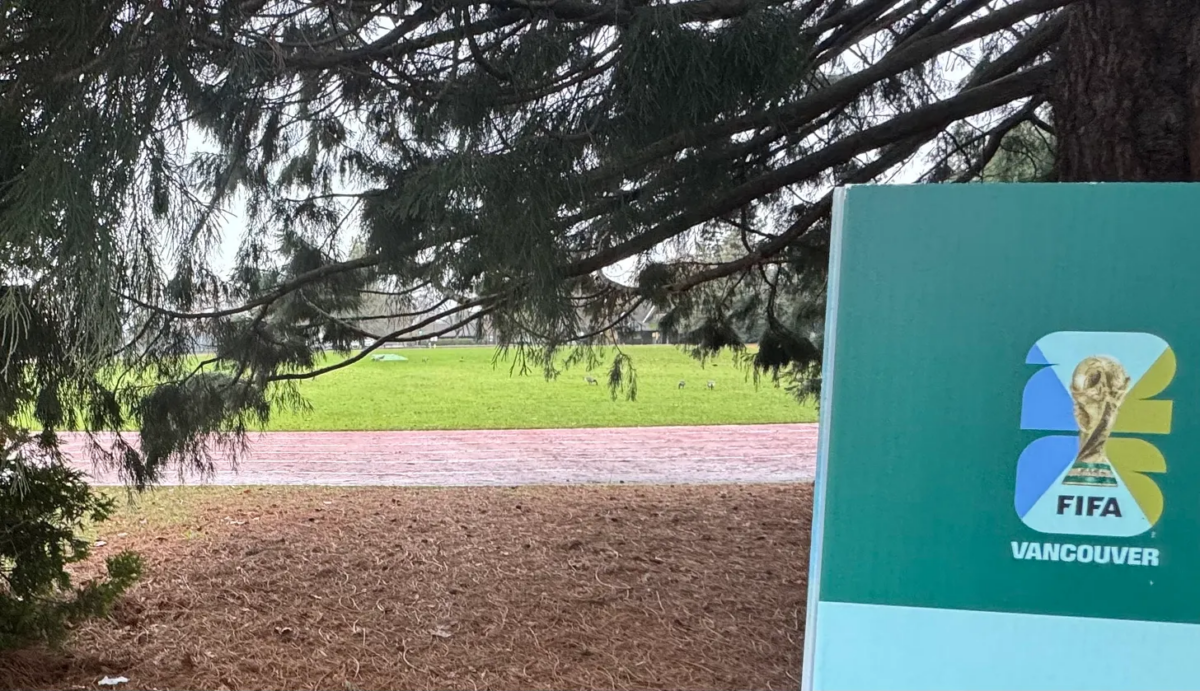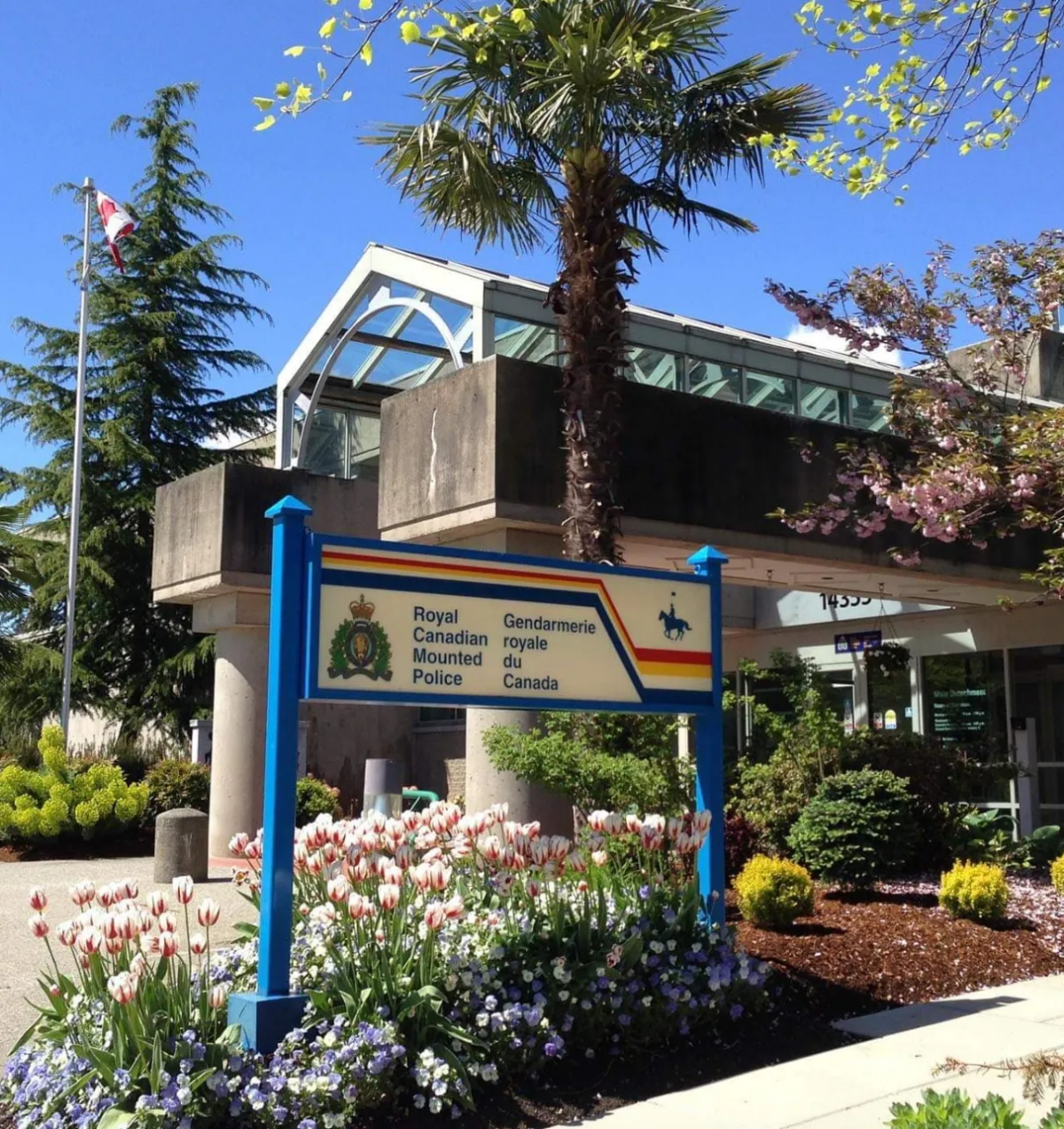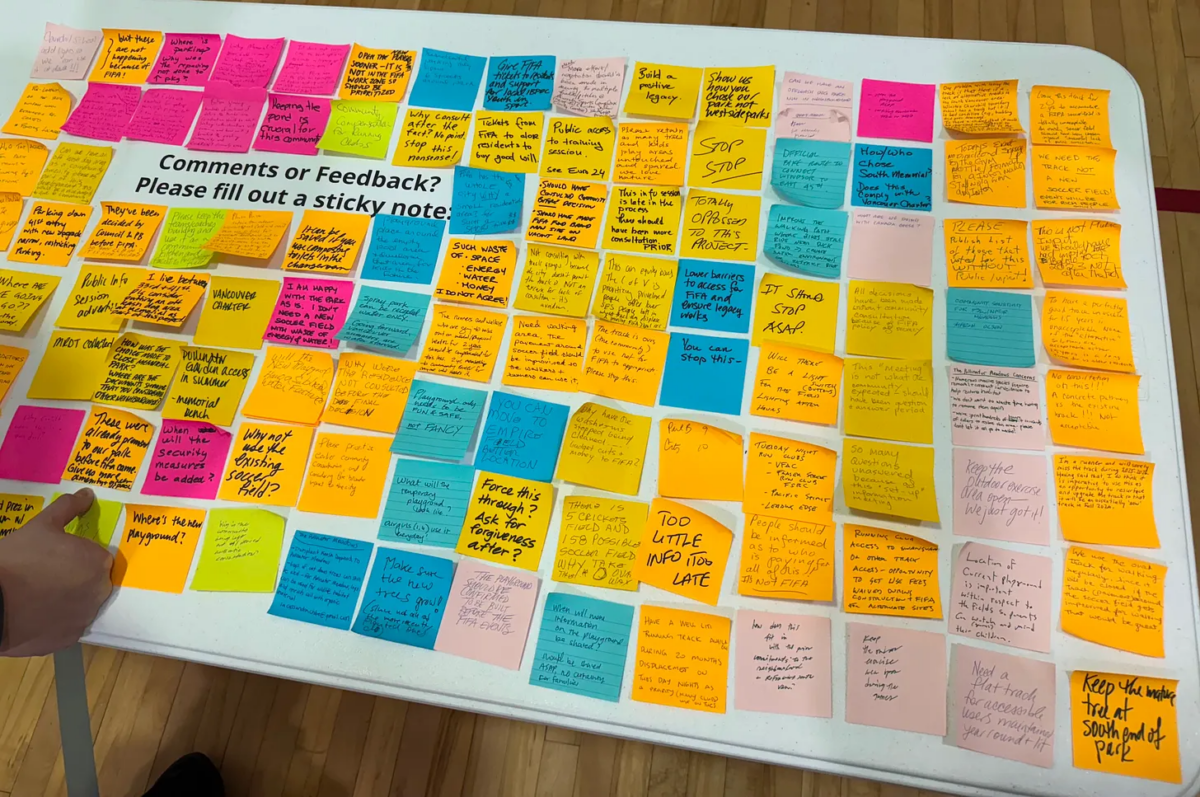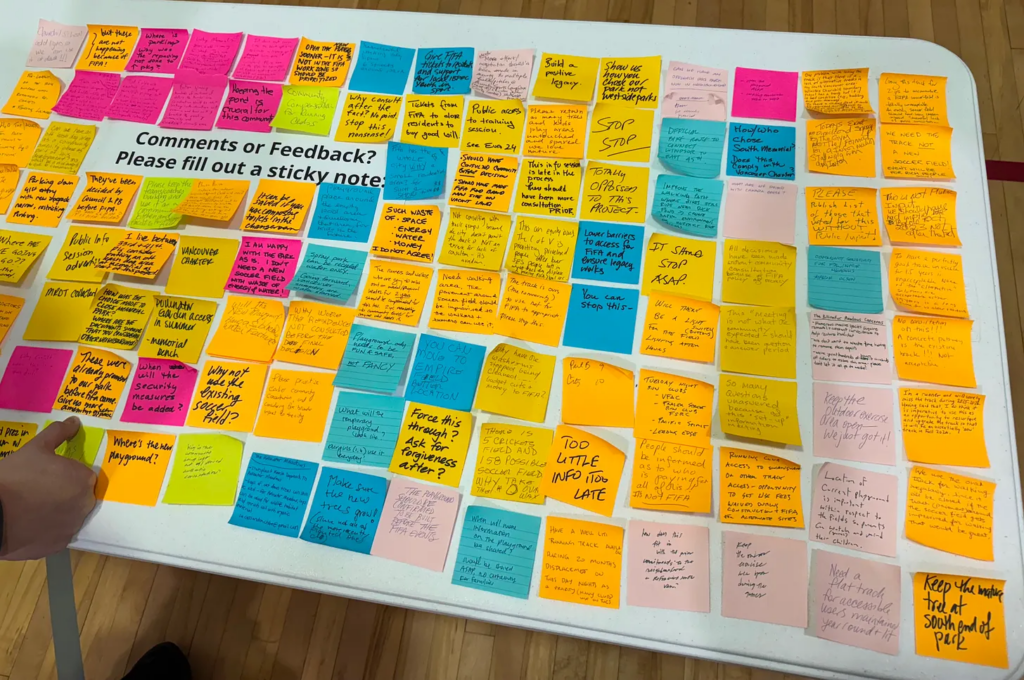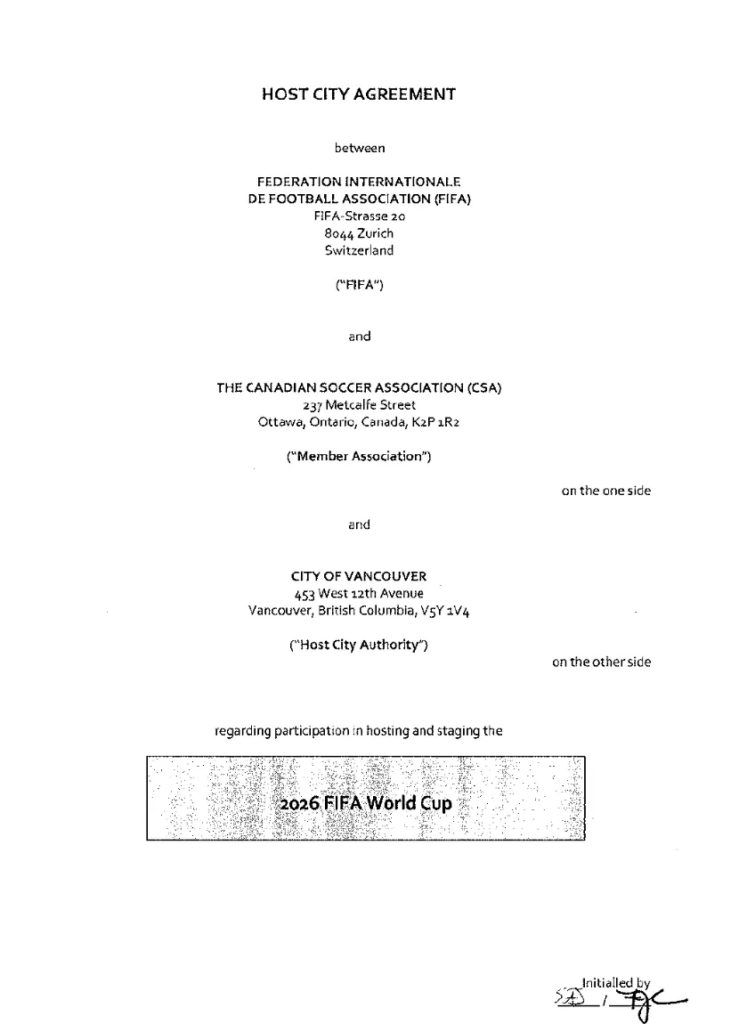Cost of first phase to make two Vancouver parks World Cup-ready: $25 million
Briefly: Park board staff recommend Canadian Turner Construction Co. Ltd. for early works at Killarney and Memorial South parks.
Bob Mackin
The cost to taxpayers for transforming two Vancouver community parks into temporary training sites for FIFA World Cup 26 is more than $25 million.
A staff report to the Dec. 9 meeting of Vancouver Park Board commissioners recommends approval of two contracts with Canadian Turner Construction Co. Ltd. for early works.
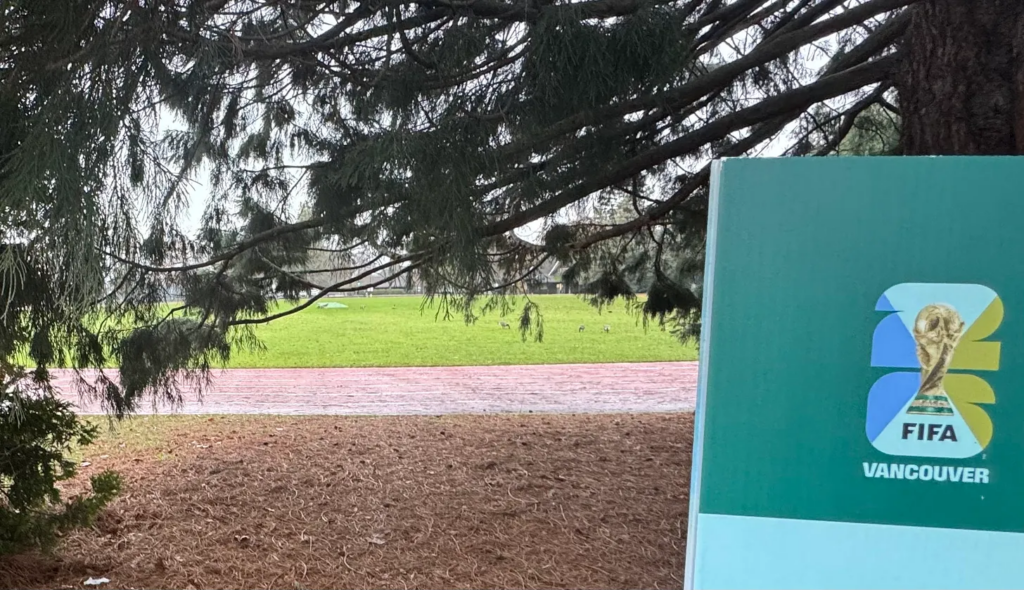
The Memorial South Park cricket oval, running track, playground and field house are scheduled to be closed to the public and transformed into a temporary FIFA World Cup 26 training site. (Mackin)
Early works include excavation of peat at Killarney and hauling off-site for disposal, grading for the natural grass pitches, parking lot and temporary facilities, ordering items like high mast field lights, service connections and upgrades, and operations compound preparations. The work is scheduled to be finished next December.
The Nov. 29 staff report said the cost for Killarney is $16.25 million and $8.75 million at Memorial South Park, based on estimates of $12.7 million for Killarney and $6.9 million for Memorial South, plus a “price volatility premium and 15% contingency.”
“The cost estimate is a placeholder amount recommended to ensure that adequate funding is in place to award these contracts at council and Park Board in December in light of industry pricing volatility,” said the report.
Friends of Memorial South Park has more than 1,760 supporters for its “Our park, not FIFA’s field” petition on Change.org. The group’s Cindy Heinrichs said she was blown away by the staff report.
“I find it interesting that this report is dated November 29, the day before the information session [at John Oliver secondary] — the first and only opportunity for the community to learn about what’s planned for the park — but not one word was said about the cost,” Heinrichs said. “And this is a week before the Park Board will vote on whether to allocate this money with a start date in January. Why was this not done months ago?”
The report said the Park Board received eight requests for expressions of interest to a March 12 tender call, but only two respondents were shortlisted for the June 7 request for proposals. The unsuccessful bidder is not named. The next step will be procurement for site works in the first quarter of 2025. The report does not include that cost estimate.
Without any public consultation, the city announced July 16 that the two sites were promised to FIFA.
“The site selection process, decision, and agreements for the locations have confidentiality requirements,” the Park Board staff report said.
Also at the Dec. 9 meeting, Comm. Tom Digby (Green Party) is hoping to table a motion for staff to explore alternate sites in purpose-built soccer facilities in Burnaby and at the University of B.C.
NEW: Subscribe to theBreaker.news on Substack. Find out how: Click here.
Briefly: Park board staff recommend Canadian Turner






